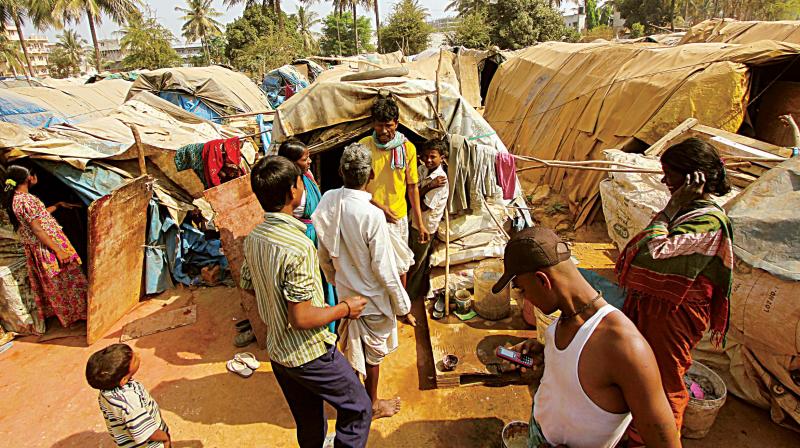Big city blues for migrant workers

Bengaluru: The increasing number of cases of sexual molestation in Bengaluru has one aspect that has received little consideration – the involvement of migrants from other states.
In two of the latest cases, that of the lingerie pervert and the molestation of a child by a guard, one was from Bihar and the other from Odisha. These are but a small statistic. The larger picture is that Bengaluru may be paying the price of its growth.
The fifth biggest Metro in the country has seen heavy influx of people from other states, and may now be witnessing its consequences. While the diaspora from other states for IT and other well-paying jobs is well known, the elephant in the room is the migrant workers, who move to the city for low-paying jobs, particularly from West Bengal, Odisha, Bihar, Jharkhand and Eastern UP. In a population of one crore-plus, these migrants could be numbering close to a million and spread over the newly developing areas of the city.
Most of them work in construction industry and other seasonal industries. They are young and live away from their families. And the victims of their sexual angst happen to be children, mostly of fellow workers who have their families with them. Gadadhar Jena from Angul district in Odisha drives an auto in East Bengaluru. He came to the city three years ago, and can even speak a little of Kannada.
“My family stays in my villages. I live here along with five others from my district in Kalkere. We live in a shed on an empty plot, where my friend is the watchman,” Jena said. His friends are all young men and unmarried. Jena worries about them, and has advised them to get married and bring their families here, although his family stays in his village.
“It is better to bring them here. It is a very good city. If not, young men can stray. They can do things which can get them into trouble,” the auto driver said. Similar sentiments are expressed by Abonindra Pal from Midnapore in West Bengal.
The carpenter, who works on a high rise coming up in Bagaluru, said families are the best guarantee against young migrants going astray. Pal says young economic migrants from eastern India are easily swayed by the dazzling lights of Bengaluru and its women. They are poor migrants, who are in the city to make a living, “but they are men like any other,” Pal remarked.
“Some of my co-workers from Bengal and Assam used to stare at women passing by. I told them I will complain to the local police if they did that. Now they have stopped,” Pal said. He is very worried about such behavior, which he says can build an anti-migrant sentiment. He said police must intervene and form panchayats of local migrants that will counsel newcomers and lay down a behavioral code.

